What does “Analogue” Mean to You?
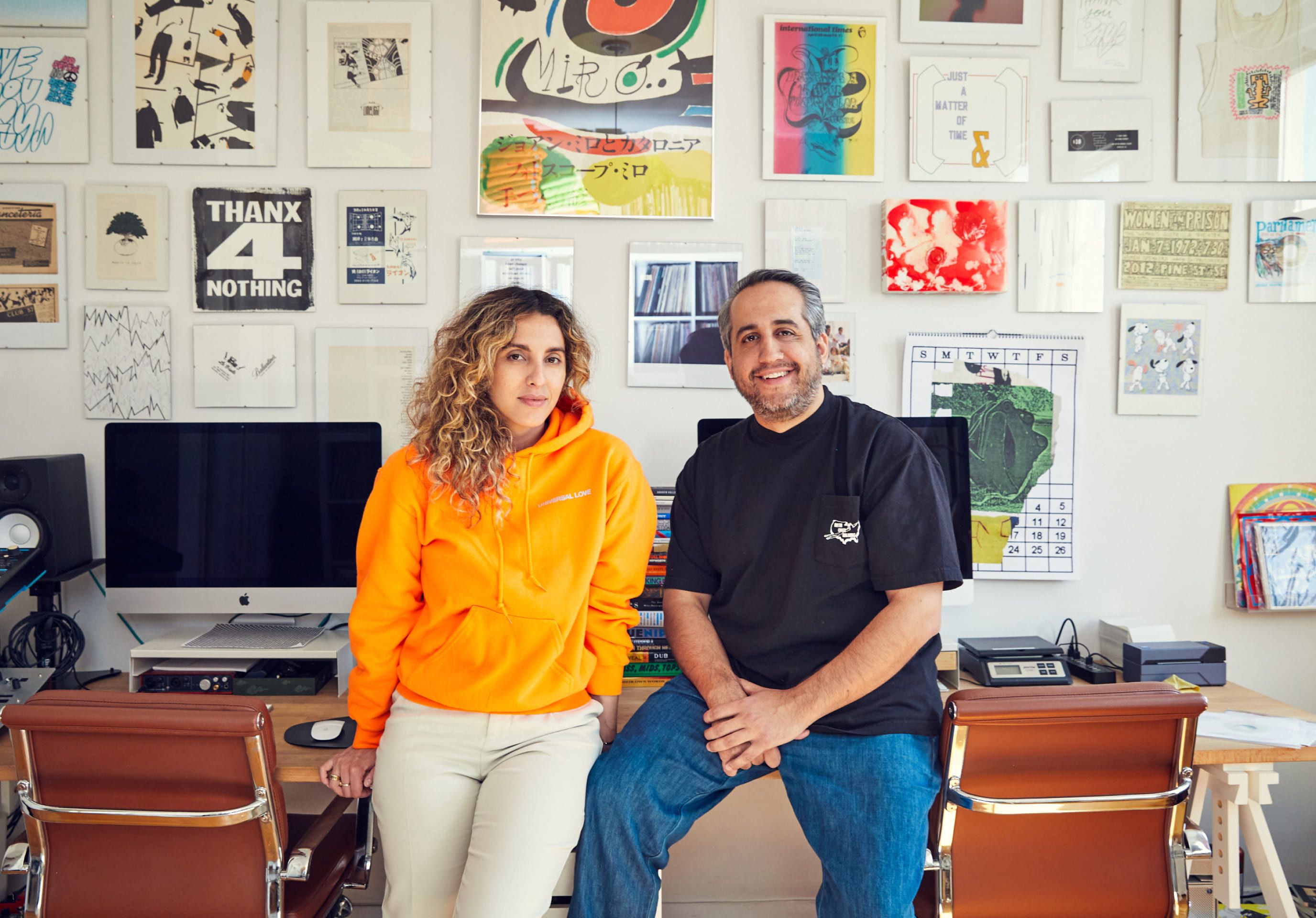
Profile
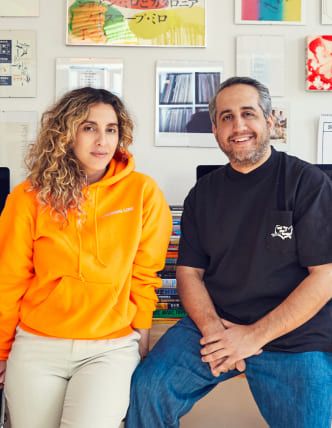
Love Injection’s Barbie Bertisch and Paul Raffaele
Launched in February 2015, ‘Love Injection’ is a labor-of-love, monthly print fanzine co-edited by Paul Raffaele and Barbie Bertisch, ‘Love Injection’ has quickly established itself as a critical platform for celebrating the constantly shifting cultures of dance music.
Since 2015, Barbie Bertisch and Paul Raffaele have co-edited Love Injection – the independently published monthly zine that documents and celebrates New York City’s community of artists, producers, DJs, record labels, promoters, dancers and other contributing characters as only those of and intimately familiar with this community can. Both DJs themselves (amongst other skills and vocations) and attendees of the Loft, the couple were initiated into the world of high-end analogue audio when longtime David Mancuso-associate Colleen “Cosmo” Murphy invited them to produce and host the New York chapter of her Classic Album Sundays listening event series. They’ve since continued to carry on the Loft’s ethos of the party as a celebration of inclusivity and sonic warmth with their periodic Universal Love soirées. And with the launch of Love Injection Records, provide an additional platform to support and amplify artists whose music resonates with them most profoundly. Their most ambitious publishing endeavor yet may be the forthcoming book project, Dope From Hope, (announced as a Kickstarter campaign pre-COVID, subsequently placed on hiatus, and slated to re-start later this year). Its aim: to debunk hi-fi’s perceived impenetrableness by anthologizing the writings of Klipsch Audio founder Paul Klipsch – a subject matter that Mancuso himself studied back in the day while building the Loft’s sound system in pursuit of his personal ideal of audio fidelity. It’s within this context that Barbie and Paul share some thoughts on their own journeys into sound.
01
Analugue is...
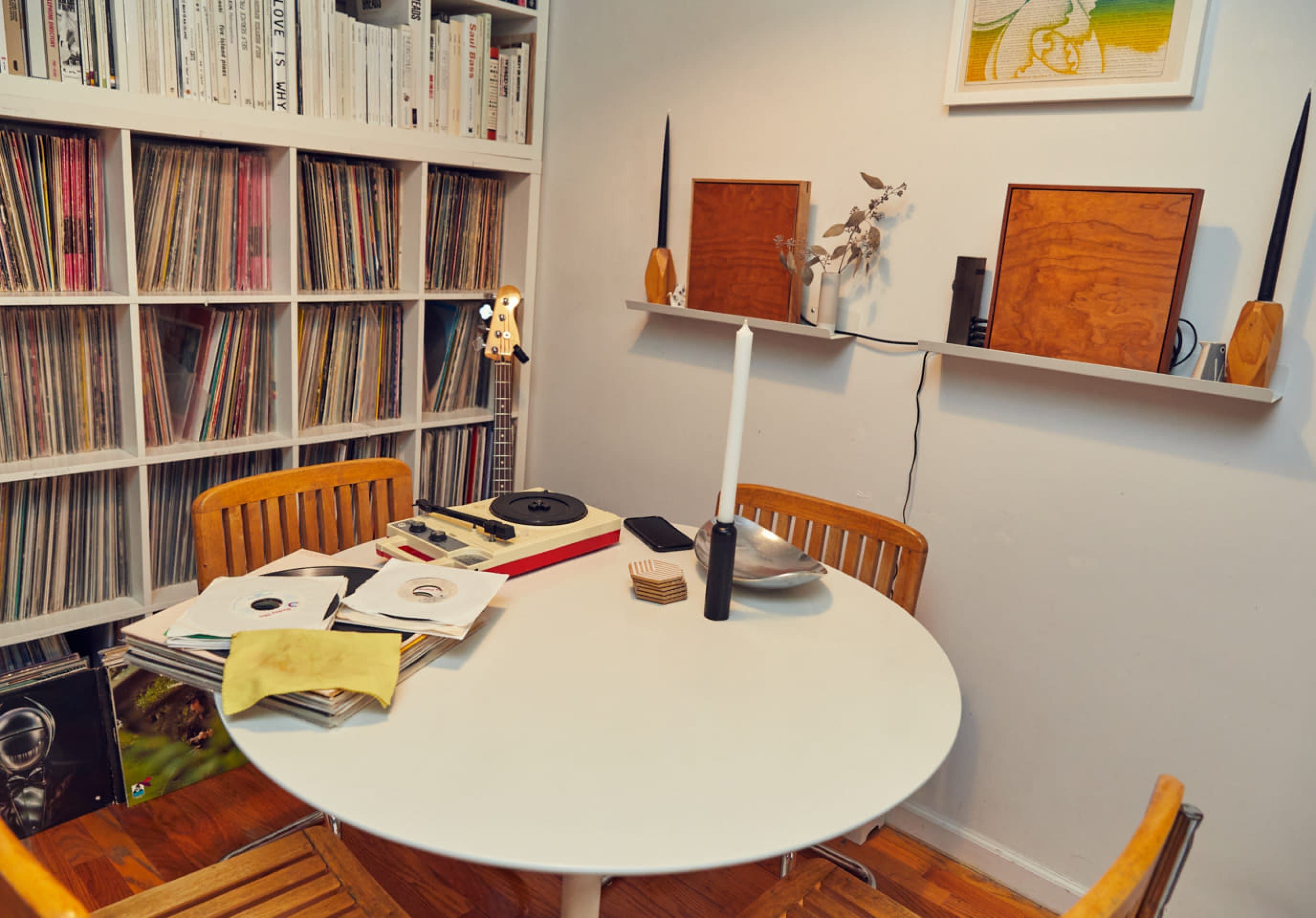
I think of analogue as being something that has a tactile quality to it, and something that has its own energy to it.
Analogue is…
Barbie (B): As somebody who collects a lot of records I associate analogue with that. But also as somebody who is really into analogue music reproduction equipment I think of analogue as being something that has a tactile quality to it, and something that has its own energy to it. When people speak of objects in a sort of cosmic sense there’s this idea that objects carry their own energy, right? And everything has its own energy – a record, a turntable, a magazine. I think of analogue as just having these energy-like qualities, and as something that can provide context.
Paul (P): When I think about the energy our own library of records and books brings us, to have that library that you can pull inspiration from or get you out of a rut of a day emotionally or help you with a project is really special. That’s like a kind of tangible way for me to understand the energy that a book would bring. When you read something or listen to something digitally there’s [not necessarily] an expectation of how physically you’re gonna consume it. But with a magazine its size, the paper quality, the size of the text, things like that will dictate how you hold it. With a record, are you gonna read the liner notes first? All the components that make up your system affect the way you listen to it. There’s just a lot more variables of control. There’s just a personal approach of how you can interact with these analogue items whether it’s music or reading.
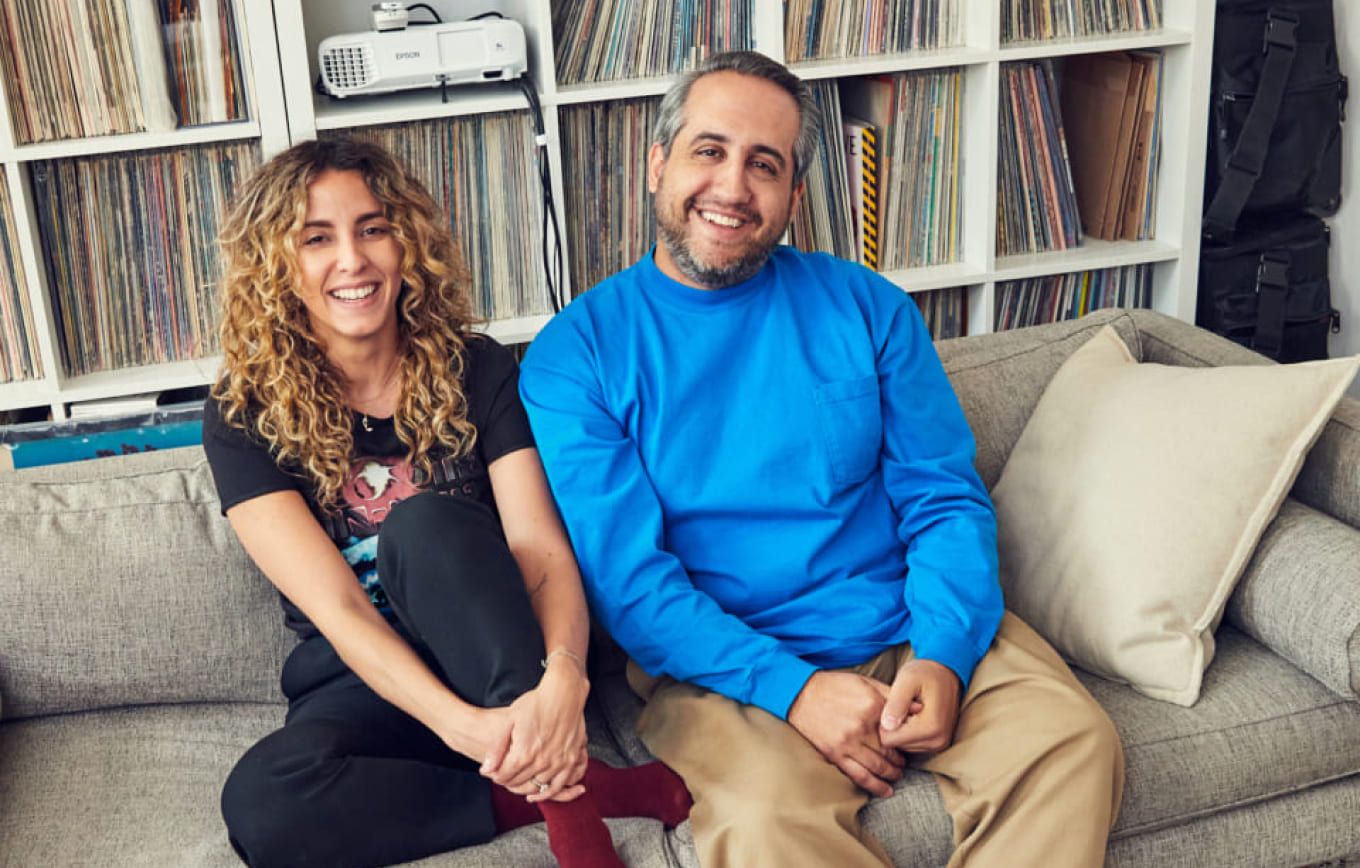
02
The Beginning
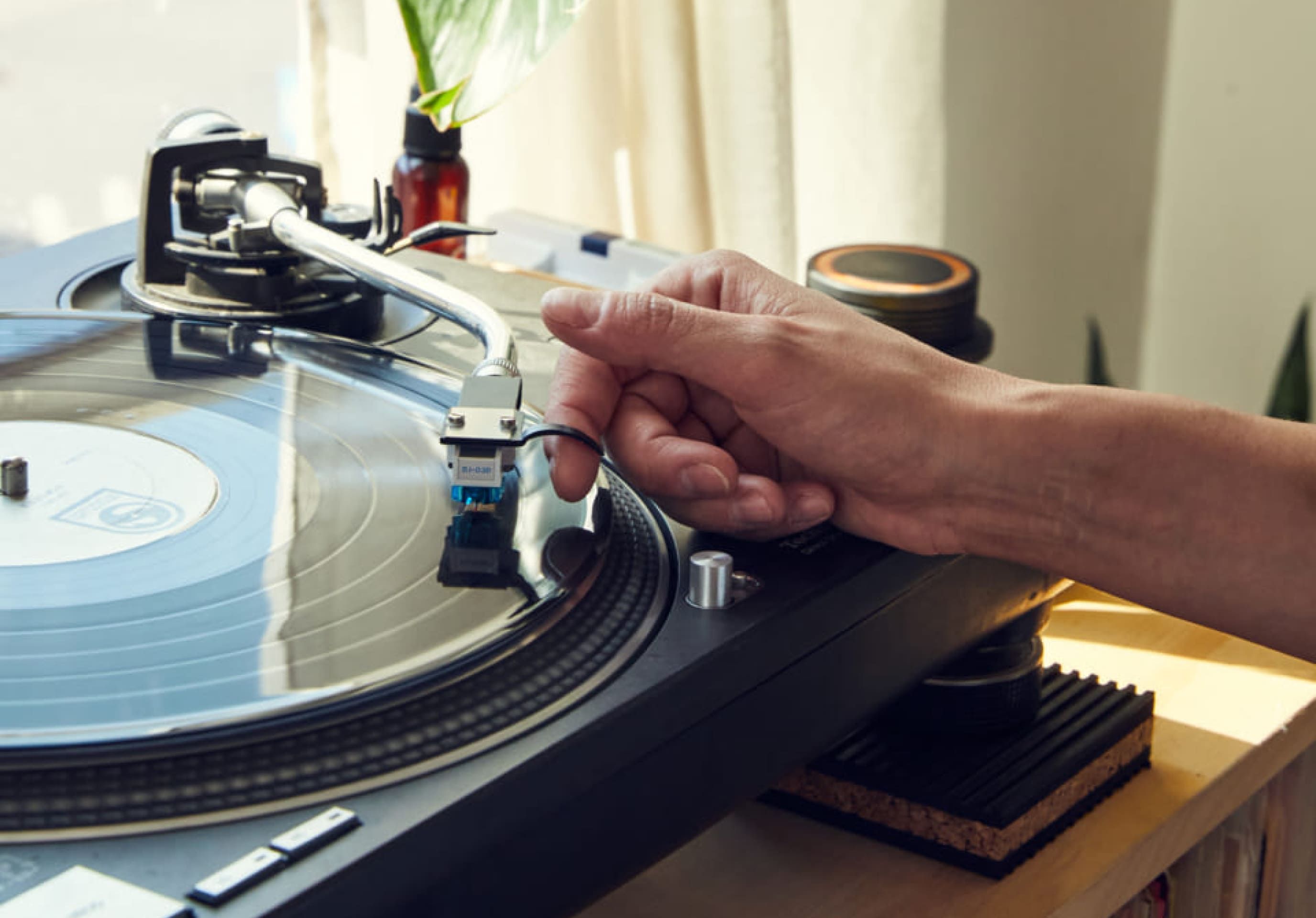
It all comes down to intention. For something to exist there has to be an intention behind it first. With a lot of the things that we do – even throwing a party – what they have in common is they all start with an intention.
So taking this awareness of how you interact with analogue objects into account, how does this influence you guys as the creators of these objects – be it the magazine, books, records or whatever the case?
P: I’m not sure. I think one of the things we like to provide with Love Injection is escape from the screen. So it’s very much intentional that we limit the way you can interact with it on digital platforms because we want you to just get out of that screen glow and not let your brain get distracted by all these other digital things.
When thinking about ways that I kind of explore my creativity, what I keep going back to is, I just love suffering for my work. I love putting my all into it and then making a thing that I push out there and that thing can become that object that brings happiness to someone else. And when I finish something and it has that effect that’s when I feel kind of whole.
A part of the reason why I’m so satisfied with Love Injection is because it allowed me to create this body of work almost passively. I think [working professionally in] design for me has become too ingrained in the commercial world. It’s always been a job. But as I designed Love Injection I’m not really thinking about design, I’m thinking about what the piece needs. I am exploring different ideas, and some issues have more of my design style. But yeah, I look at it as a passive act. And when I look back at 64 issues I’m really proud of that for every reason. For the stories that are getting told, for the work that I did, for the work Barbie and I collaborated on – because our relationship has a foundation in this magazine, like it started at the same time.
B: I think it all comes down to intention. For something to exist there has to be an intention behind it first. With a lot of the things that we do – even throwing a party – what they have in common is they all start with an intention. And what that intention is formed of is just a collection of emotions. It’s a collection of what your hopes and dreams are for this thing that you’re about to embark on.
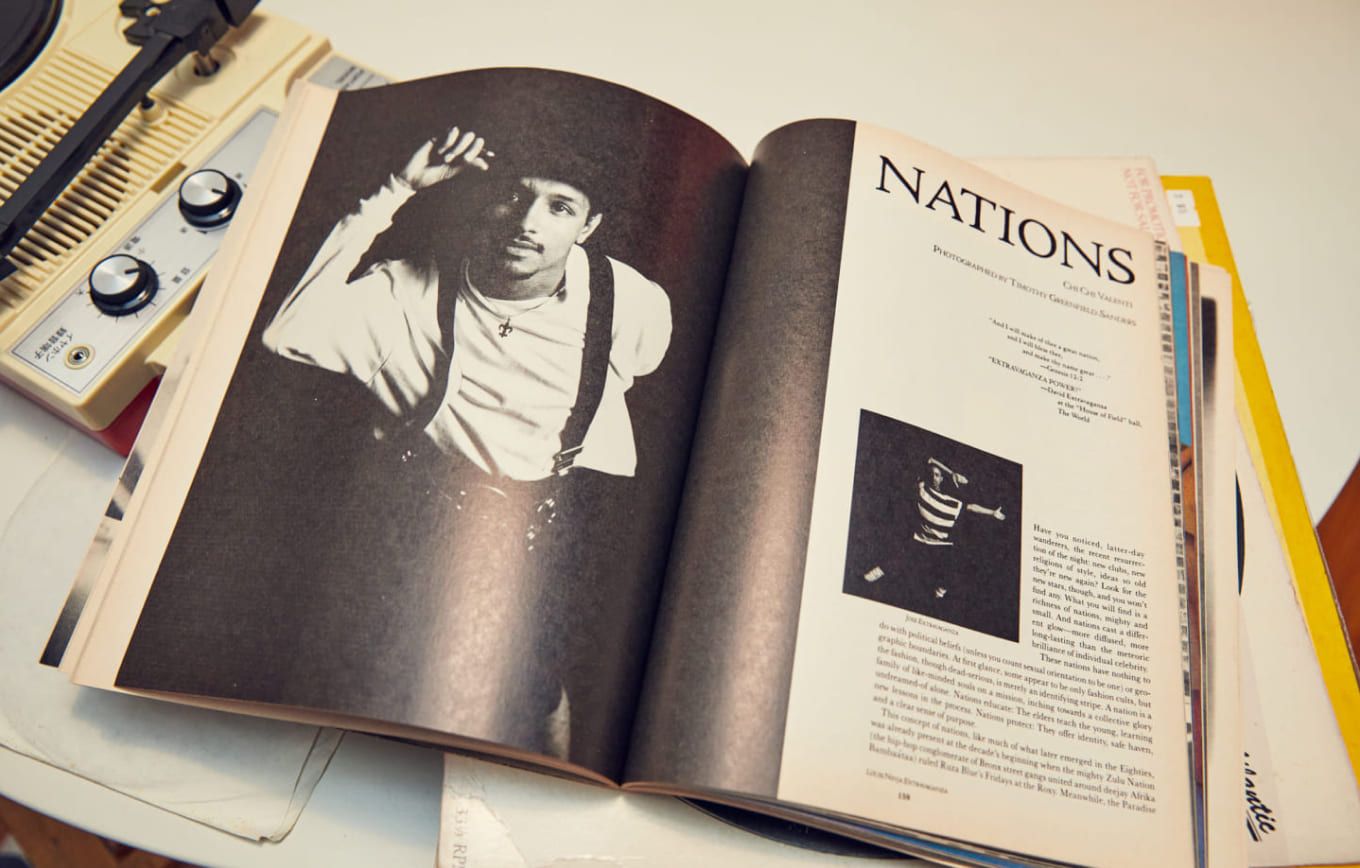
03
About Music Creation
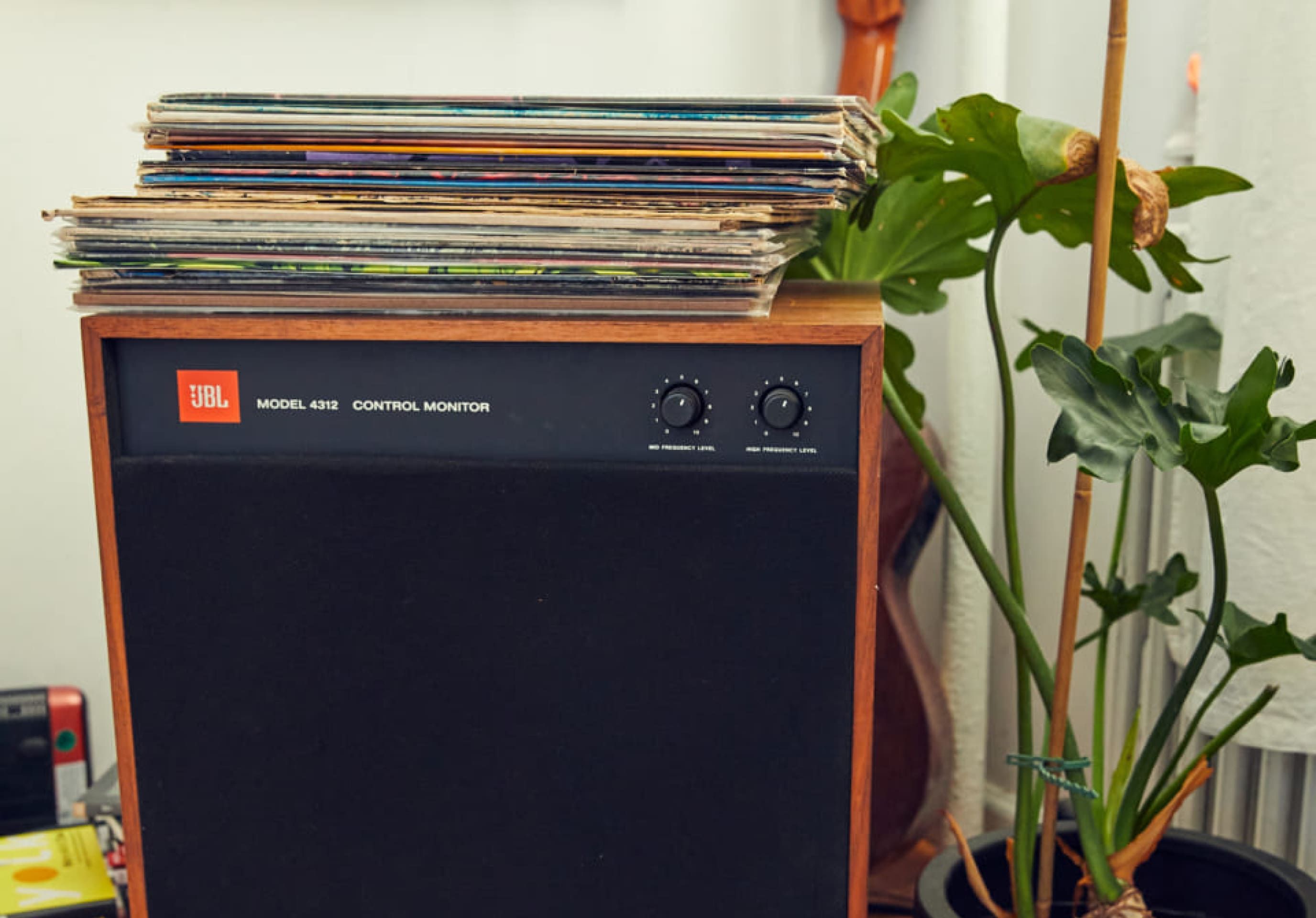
The “work” that you need to put in can start with laying back and listening to something in full and paying attention to it. There’s no barrier of entry, there’s no gate keeping that we’re trying to bring across here.
As you’ve become more immersed in the high-end analogue audio world through projects like Classic Album Sundays and Dope From Hope, how do you think your perspectives have evolved regarding hi-fi?
B: I think the world of hi-fi right now in this era of listening cafés and high-end audio dance clubs is very different from the hi-fi world that the general population interacts with. Like the sort of man caves and the basements full of fancy speakers and turntables. They’re two very different worlds and what Colleen [Murphy] and Classic Album Sundays hopes to do is to kind of bridge that gap and introduce a new generation of audio and music fanatics to this concept of hi-fi. And it goes back to the whole analogue thing and really learning how these physical things have their own energy and how they become part of your life and how you interact with them. It’s kind of like a record collection. When you start getting into hi-fi you start collecting and looking for things and doing little tweaks here and there to improve the way it sounds. There’s the people that say scientifically there is the best sound and then there’s the worst sound. I understand that may be the case, perhaps. But I think that good sound is what really speaks to you. I like warm sound systems and other people like precision. It’s all about personal preference.
P: It’s funny even a couple of years going into this I was still really confused. You know, we’re students, we’re listening to all these people with more experience than us talking about their preferences. And in my head I was always like, “Well, who do I believe?” [laughs] You know, like someone’s saying cables matter, someone’s saying cables don’t matter. Someone’s saying it should be this height, someone’s saying it should be that height. And it was just like this profound confusion that I just figured one day I’d figure out through experience. But I was listening to this person Tea Uglow – who’s like a creative in Sydney. They’re not even in the music world, but they were talking about audio and how our anatomy dictates how we hear things. How each of our ears are differently shaped, therefore some people have better hearing, some people a little bit less so, and then everywhere on the spectrum. So everyone hears [differently], it’s just very subjective. And that just put me at ease a bit.
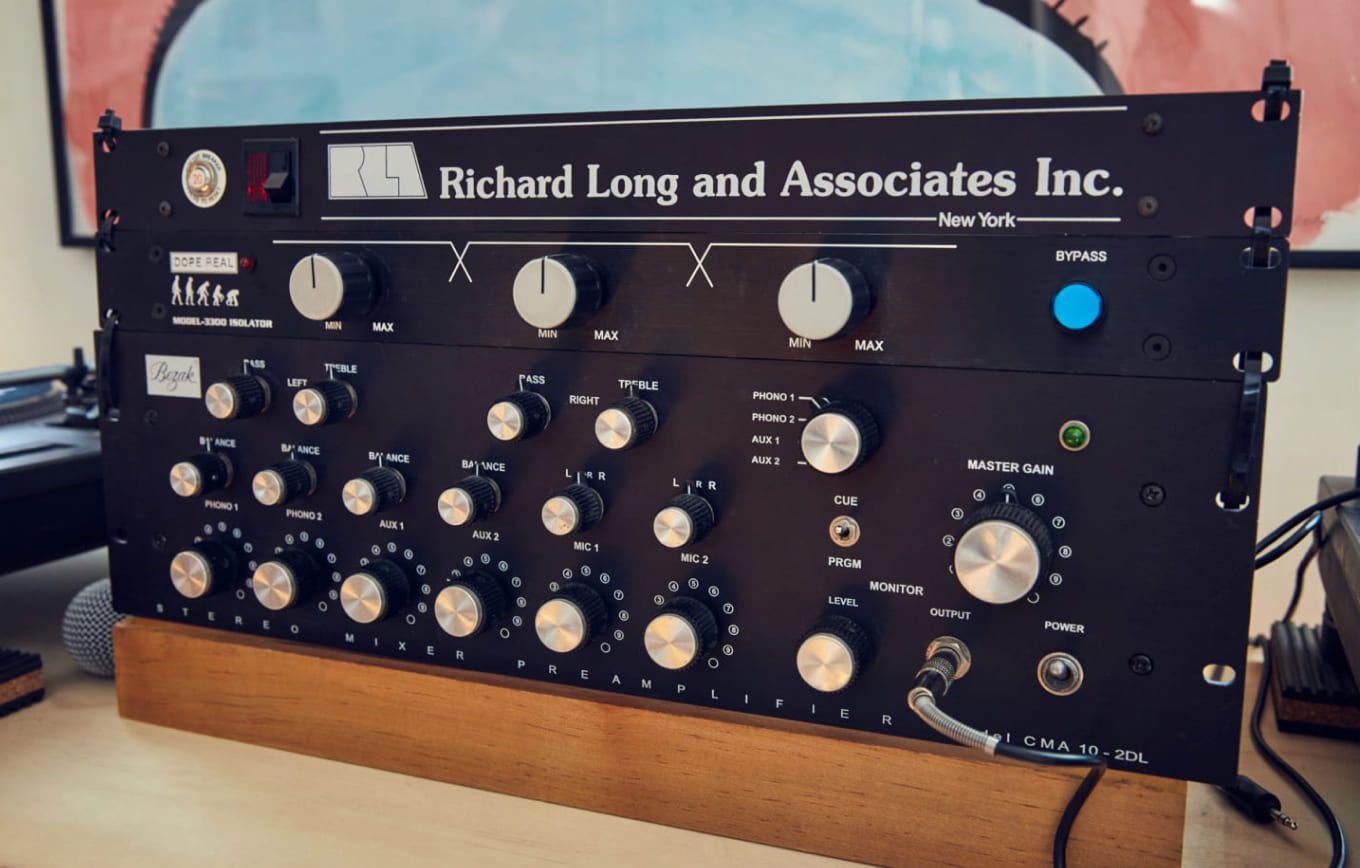
Going to through the Klipsch archives there’s a quote you guys have cited about emotions relative to science.* And I’m curious whether the process of going through these archives has made you rethink or reassess the way these two things are related?
P: Going back to what Barbie said, there’s this distinction between the traditional hi-fi world like chasing technical accuracy and precision and science. And what I think we are chasing – or what we really enjoy when we get a chance to really listen with the kind of equipment that will allow the music to be presented in a way that it was intended – is the feeling that we get. We tend to be attracted to loudspeakers and components that make the playback feel musical and natural and effortless. That’s what makes our hair stand up. And I think that’s why, not as a commercial for Klipsch, but Klipsch is the vehicle by which we’ve had those feelings.
B: But also as students of the history of the Loft, Klipsch has become part of our consciousness because it’s the legacy that we study. There’s also the reality that I’m not an engineer. I’m a DJ, a huge appreciator of music, and maybe I’ll call myself a musician if I feel brave enough. But what I am lacking as part of my understanding are some of these more scientific learnings. And it’s part of why we set out to do this Dope From Hope project because there’s a lot of knowledge that’s not easy to come by in the world of hi-fi. Because it feels like there’s just this sort of steep hill of scientific language that you just cannot or will not grasp. And what these papers offered were a more sort of layman’s approach to some of the issues or some of the questions that we ask ourselves. And I’m sure we’re not the only ones to do that. And like Paul said, the science is just a means to hopefully have those emotions. You can most certainly have emotions with the “worst” sound systems, with very bare bones, not hi-fi sound systems. We’re not saying that you cannot have those emotions. But the way that we personally have experienced it has been through this clarity, warmth, definition. That’s just part of our experience. And that’s just why we seek it out and why we want to learn more.
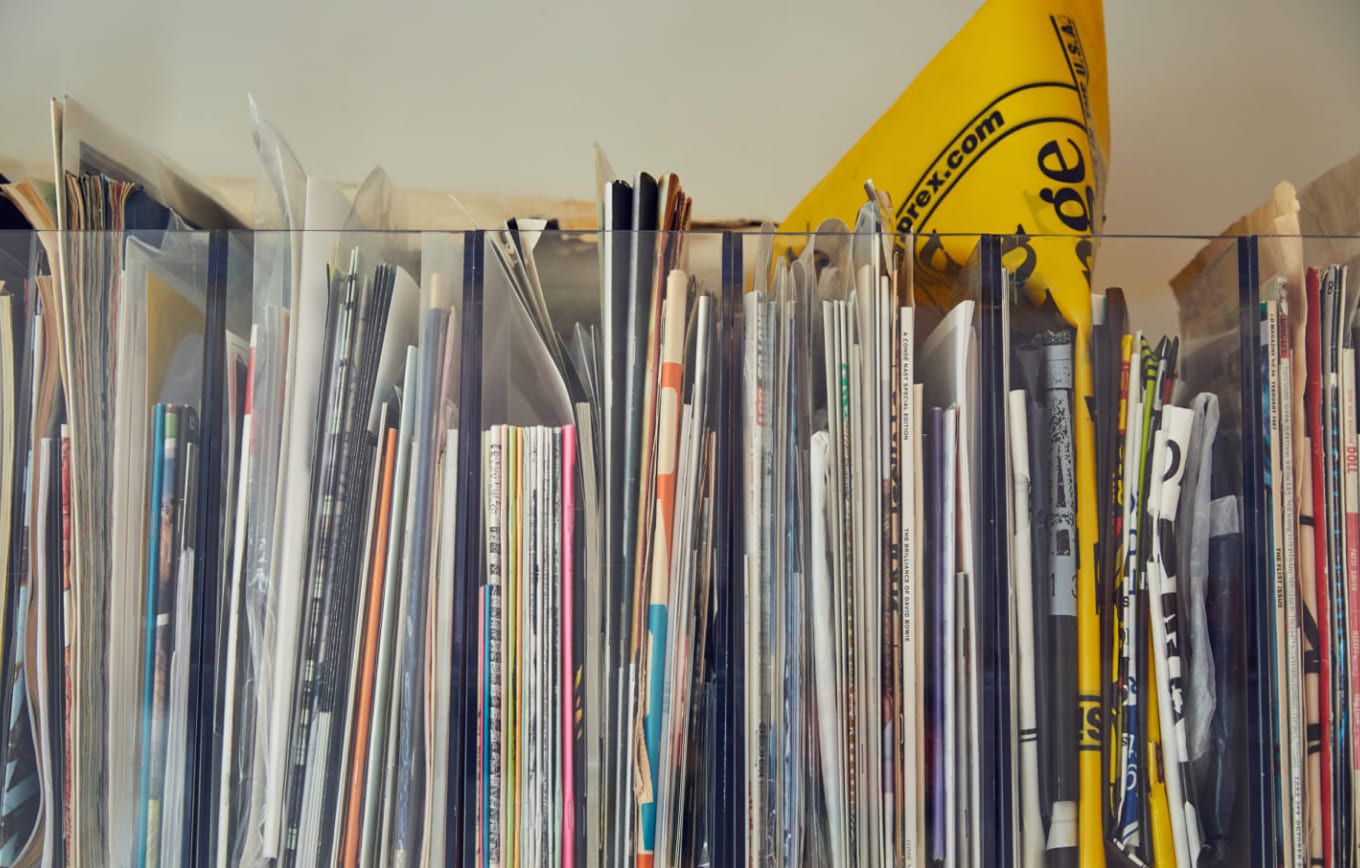
What else has struck you from going through the archives?
B: Going to the museum and going to the factory were incredible experiences because it’s so much more than just Klipsch related items. It’s more about retracing a timeline. Going back to Hope, Arkansas – this dry county, small city in the south, where we had to take two airplanes to get there and the second one was an eight-seater. It was so remote and outside of our own world, and it allowed us to take all the context that we had about Klipsch and just see it with fresh eyes. It really showed us the level to which this was a small business at one point. We got to see all the legers of how many speakers were sold dating back to the beginning, handwritten notes – “sold a Klipschorn to this person” with the address. But there’s so much. There’s promotional materials from the ’80s, and like weird kind of prototypes that never made it to market.
P: Jim Hunter, we respect him a lot. He’s a retired engineer for Klipsch. And he is the curator and the caretaker of the Klipsch Museum of Audio History, which is just down the road form the factory. And it’s just a very selfless [endeavor]. I relate it to what we’re trying to do with Love Injection. It’s just inspiring to see. The museum is open every day. And he’s there every day for people if they want to come in, and he’s got all this stuff meticulously laid out. Only recently have they gone through the entire archive of paper, out of which they’ve carved Dope From Hope. Now in working with them we’ve encouraged them to compile it and really understand the breadth of what they have and what Paul [Klipsch] wrote. So it’s exciting and without Jim’s cooperation we wouldn’t be able to do this.
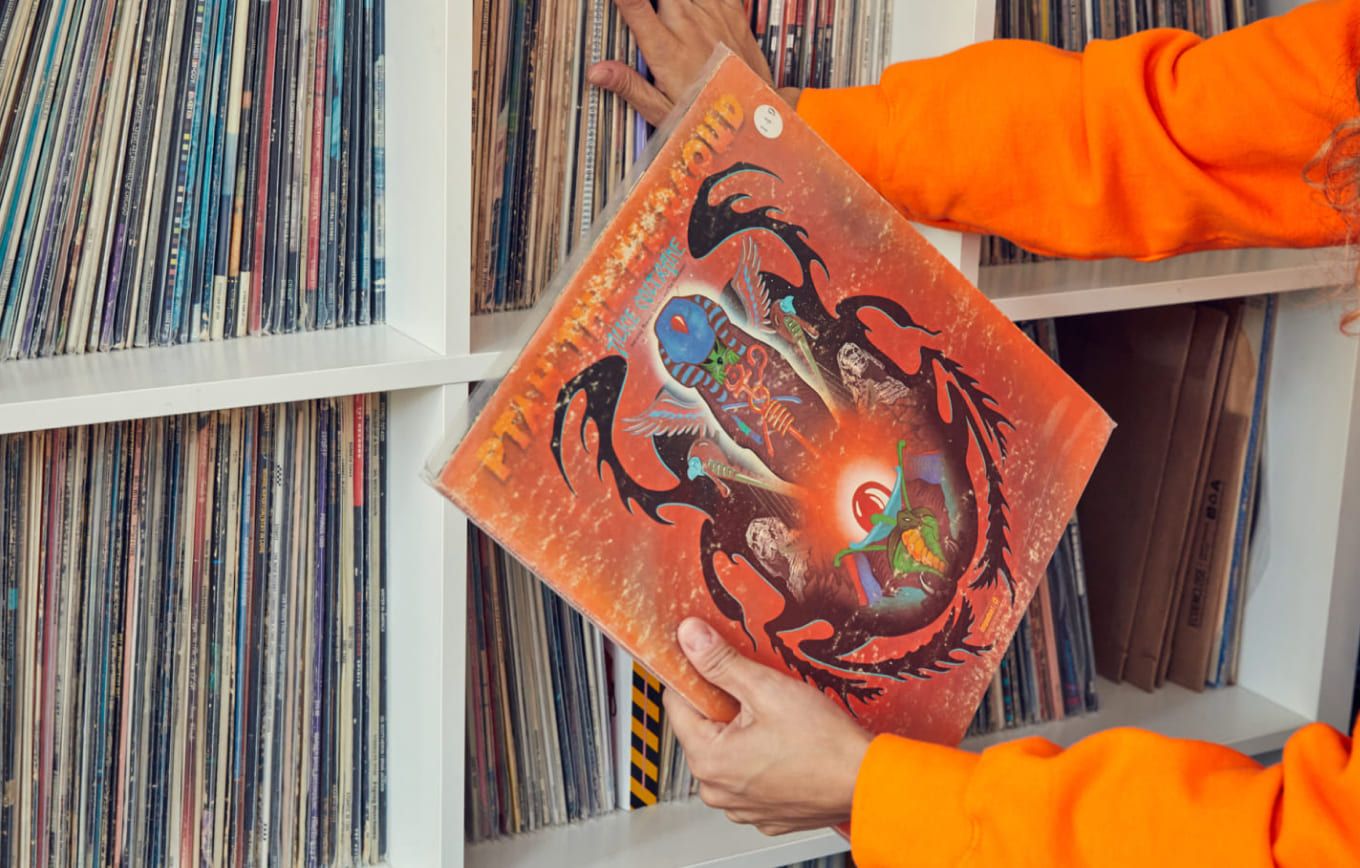
The timing also feels apropos given the trends towards hi-fi over the past few years.
B: Right now you know anybody can buy two pairs of Heresy [speakers] on eBay and just be like, “We’re a hi-fi-something!” But it’s about having a point of view. Ultimately it’s like with fashion. Money can’t buy you style. And money can’t buy you knowledge. You really need to put in the work to further your understanding. And not just say, well I’m gonna buy this speaker and I’m an audiophile. There’s like incredibly cheap, affordable products that sound incredible. So it’s not that the expensive aspect of it makes you an audiophile, it’s that you are interested in pursuing this knowledge so that you can better listen regardless of the price tag.
P: And the “work” that you need to put in can start with laying back and listening to something in full and paying attention to it. There’s no barrier of entry, there’s no gate keeping that we’re trying to bring across here. It’s just, listen more intently and think about this music as something that has great value.
* “Music relates to emotion, but its reproduction (including the emotion impact) is as coldly scientific as any other physical science.” – The Dope From Hope, Vol. 1, No. 1, August 16, 1960
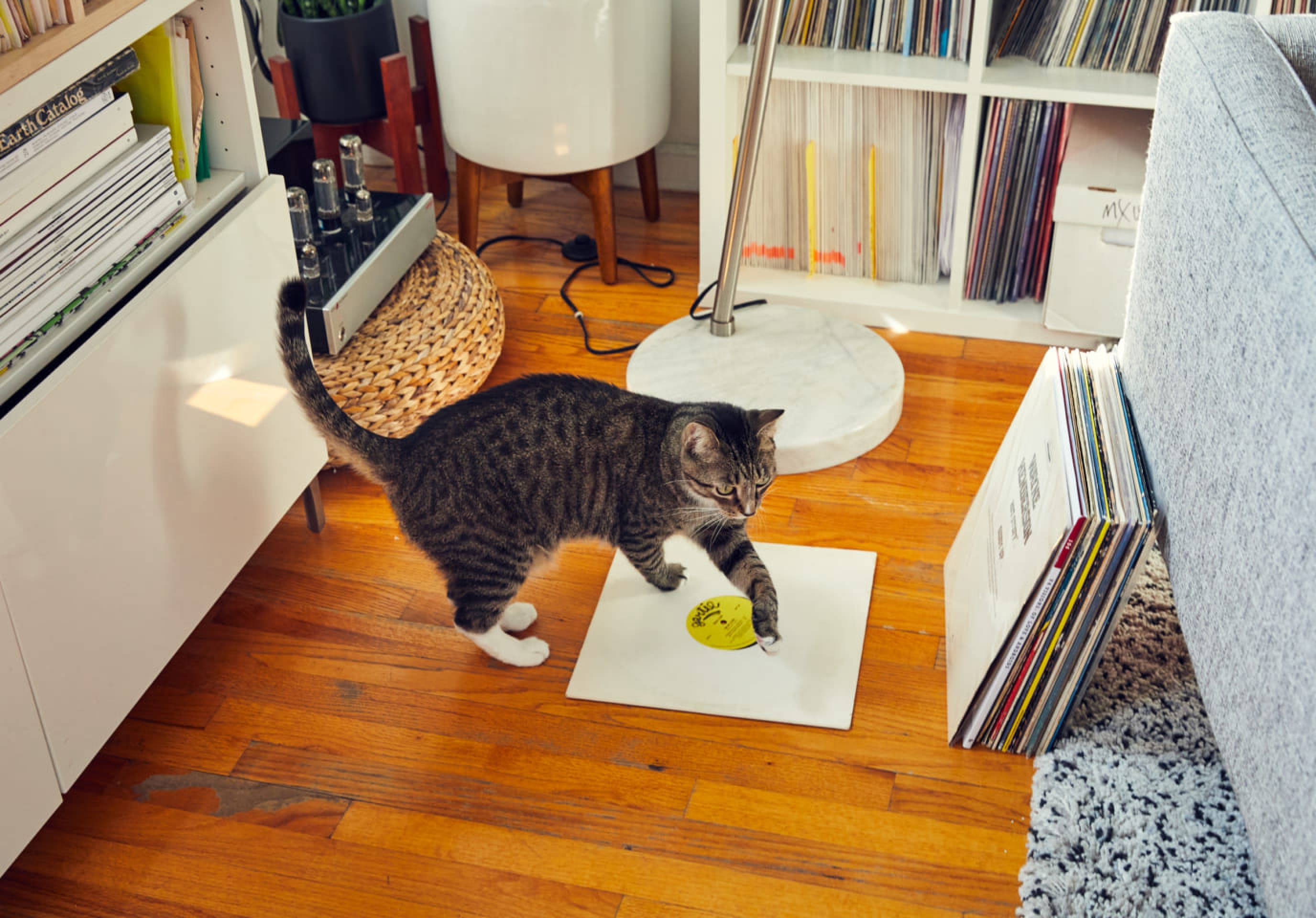
Words: Jeff Mao
Photo: Meredith Jenks
Next Voice
What does “Analogue” Mean to You?
Edan
“I think it’s earth, but more so than that it’s warmth.”
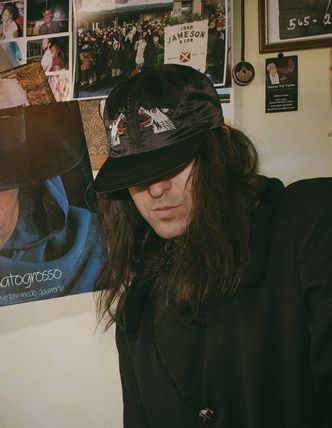
Edan’s singular talents as an emcee, DJ, musician and producer (the first two performed simultaneously on special occasions), has well earned him the playfully self-dubbed title Grandmaster Multi-Tasker.
